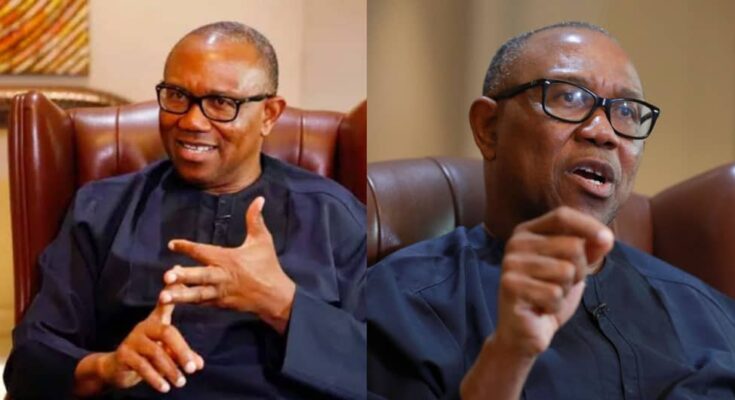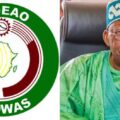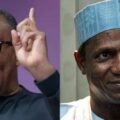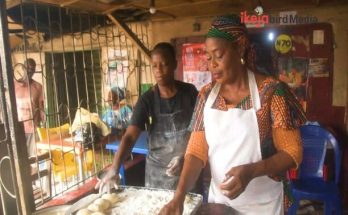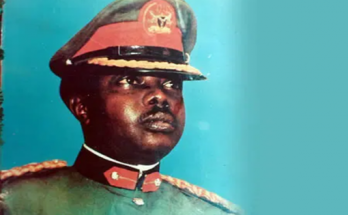Peter Obi, the former governor of Anambra State, took part in an event called PeterObiOnParallelFacts, hosted on Twitter by The Parallel Facts On Saturday, July 26. During this forum, Peter Obi openly shared his thoughts, ideas, and beliefs, giving us a clear view of his thinking.
In this content, we’ll explore the key highlights from #PeterObiOnParallelFacts, presenting the important things he discussed. We’ll learn about his views on how the country should be governed, how the economy can be improved, and why tackling corruption is essential. He also talked about the importance of education and the role of young people in Nigeria’s progress.
Join us on this journey to understand Peter Obi’s wisdom and vision for a better Nigeria. We’ll explain his ideas about making our country stronger, more united, and more prosperous. Let’s explore the valuable insights shared under different aspects:
Economic sector
Peter Obi offered pragmatic perspectives to address the nation’s challenges in the economy and unlock its potential for growth. He emphasizes the vital link between a strong domestic policy and a robust foreign policy. According to Obi, a nation’s external relations can only be effective when it first lays a solid foundation of stability and progress within its borders. Therefore, fostering domestic development becomes a crucial stepping stone towards projecting strength and influence on the global stage.
Drawing inspiration from Nigeria’s past achievements, Peter Obi urges the nation to learn from history to shape its future. He points to the era of colonial rule when rail systems were built from the North to Lagos for efficient food exports. By harnessing the lessons from this past success, Nigeria can leverage its vast resources and capabilities to achieve even greater feats in modern times. This calls for a strategic focus on optimizing key sectors, enhancing infrastructure, and promoting innovation to drive economic growth and development.
Another vital aspect of Peter Obi’s economic insights revolves around the country’s currency stability. He cautions against floating the Naira without first establishing a strong production base. Obi emphasizes that a stable and sustainable currency can only be achieved when the economy shifts from excessive consumption to robust production. A productive economy generates real value, leading to increased earning opportunities for the workforce and reducing income disparities. This, in turn, strengthens the country’s currency and minimizes its vulnerability to economic fluctuations.
Political Sector
He also emphasizes the importance of integrity in governance, staunchly denying any involvement in corrupt practices and proudly stating that he left office without taking a single penny for personal gain. This underscores his commitment to honesty and transparency in public service.
Additionally, Obi recognizes the unique challenges faced by different regions of Nigeria. He envisions a presidency that addresses the specific issues of the North and the West, understanding the importance of tailored solutions to regional concerns. His focus on appointing competent individuals with impeccable character and verifiable qualifications further underscores his commitment to effective and ethical governance.
At the heart of Peter Obi’s political philosophy is the battle against corruption, which he identifies as Nigeria’s top problem. He highlights its destructive impact on entrepreneurship, professionalism, and hard work, warning against the accumulation of wealth without productive contributions to society. Furthermore, he champions unity and equality, exemplified by his statement on fair pricing regardless of religious background.
Educational Sector
In the educational sector, Peter Obi also shared insightful perspectives that emphasize the vital role of education in a nation’s development. He firmly believes that the more educated a country’s citizens are, the more developed the nation will become. This view underscores the significant impact of education on economic growth, technological advancements, and overall societal progress.
Youth Empowerment and Political Participation
Furthermore, Obi advocates for the inclusion of young people in political leadership, recognizing their potential to drive positive change. He calls for the implementation of a retirement age for political office holders, paving the way for the younger generation to step into positions of influence and decision-making. By involving young minds with fresh perspectives and ideas, he envisions a more dynamic and forward-looking Nigeria.
Peter Obi’s concern for the youth is evident as he highlights their challenges in the current state of Nigeria. He relates his personal experience of acquiring multiple cars while still a university student, emphasizing that the opportunities available to young people should be improved. This underscores his commitment to creating an educational and economic environment that empowers the youth to thrive and contribute meaningfully to the nation’s development.

